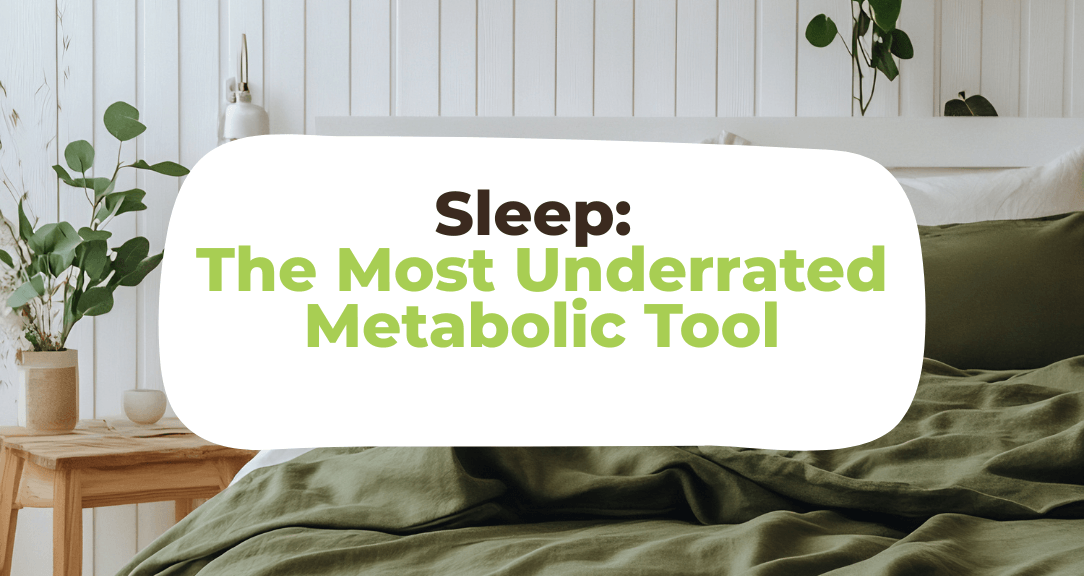Why You’re Tired All the Time (and What Your Hormones Have to Do With It)
When you’re constantly exhausted, it’s not just in your head — your body’s chemistry plays a role too.
If you’re feeling drained no matter how much sleep you get, you’re not alone. Fatigue is one of the most common complaints after weight loss surgery, GLP-1 therapy, or any big metabolic change. The good news? It’s not about willpower. It’s about balance.
Your Hormones and Your Energy Levels
Hormones act like messengers between your brain and body, helping to regulate metabolism, mood, and energy.
When they’re out of sync, you feel it, physically and emotionally.
Here are a few of the key players:
Cortisol – Your stress hormone. When it’s high all day (or too low), it can leave you wired but tired.
Insulin – Regulates blood sugar. Spikes and dips can create energy crashes and mood swings.
Thyroid Hormones – Influence your metabolism and temperature regulation; even small changes can impact energy.
Leptin & Ghrelin – Control hunger and fullness signals. When they fluctuate, your energy and focus often do too.
After bariatric surgery or major weight changes, these hormones are recalibrating, and that takes time.
Everyday Habits That Support Hormonal Balance
The simplest daily habits often make the biggest difference.
Try starting here:
Eat regularly – Skipping meals can spike cortisol and make energy dips worse.
Prioritise protein – Protein helps stabilise blood sugar and support hormone production.
Sleep like it matters – Quality rest resets cortisol and repairs cells.
Move gently but consistently – Light exercise helps balance insulin and boost mood.
Get natural light in the morning – It helps set your circadian rhythm for better sleep at night.
Nutrients and Natural Tools That Can Help
Supporting your body with the right nutrients can help your hormones find balance again.
Some people benefit from:
Magnesium – Supports muscle relaxation, sleep, and stress response.
B-vitamins – Help convert food into energy and support nervous system function.
Omega-3 fatty acids – Support brain health and inflammation balance.
Adaptogenic herbs – Natural plant extracts that can help the body adapt to stress.
Essential oils – Certain aromas (like citrus, mint, or lavender) may promote alertness, relaxation, or focus when used safely and aromatically.
If you’d like to know which trusted brands I personally use and recommend, you’re welcome to get in touch and I’ll share them privately.
It’s Not Laziness. It’s Communication
Feeling tired is your body’s way of asking for attention, not punishment. The goal isn’t to “push through” but to listen, replenish, and rebalance. You don’t need a perfect routine, just small, consistent choices that help your body trust you again. Start with sleep. Add protein. Go for a walk. Breathe deeply. And remember: healing is a process, not a performance.
Join the Conversation
Do you ever feel tired even when you’re “doing everything right”? Share your experience in the comments. Your insight could help someone else feel seen.
If you enjoyed this post, you might also like:
→ Sleep: The Most Underrated Metabolic Tool
→ Soft Biohacking: Gentle Tweaks for Everyday Energy
And for more personalised support, join Life on the Loser’s Bench or contact us to learn which wellness tools I personally recommend.
⚖️ Disclaimer
This article is for educational purposes only and is not intended to diagnose, treat, cure, or prevent any disease. Please consult your healthcare provider before making changes to your wellness routine.







